Day in the life of a Field Electrician in Uganda
This article focuses on the life of a Field Electrician in Uganda. Francis Kasendwa studied Electrical Engineering and Electrical Installations, Systems, and Maintenance. He works for Trust Electrical Services as a Field Electrician and is based in Uganda.
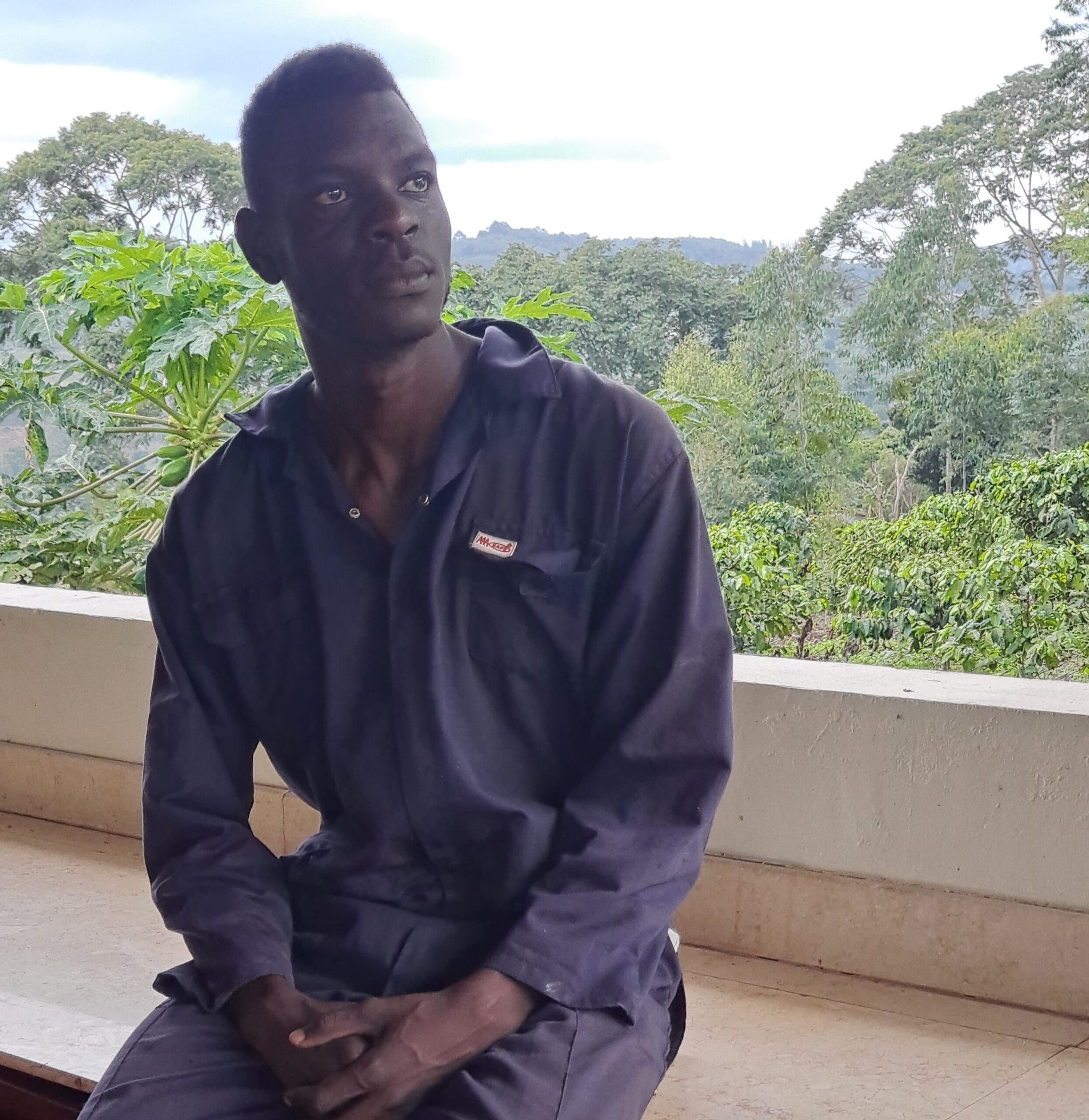

Working on site installing and maintaining electrical equipment
Background
Were you interested in science and technical things when you were a child?
Actually, I wasn’t as I was raised in a farming family. My family earned a living by farming and grew coffee and vanilla with some seasonal crops like maize, beans and groundnuts. We also carried out some rearing of pigs and had cows for milk production.
The little knowledge about science and technical work that I had was mostly from the agricultural sector. When I reached school and then college, I realized that I was really interested in technical subjects. So, I started to focus on science subjects, mostly physics and spent most of my time in the school practical room trying to learn more.
Are other people in your family technical?
None of them – it’s only me. At first, they were against me taking this path. However, they could see that it was my passion and they respected this as I spent more time researching electrical engineering and related topics.
Where does your inspiration come from?
To be honest, I have been my own inspiration. My target has been that one day I want to leave my country and go abroad to learn more about technology. So, I need to do my best to deserve it. Even coming from a humble background is an inspiration in itself: as you are the engine of yourself. You need to be a hard worker and make a difference in the team you are working with.
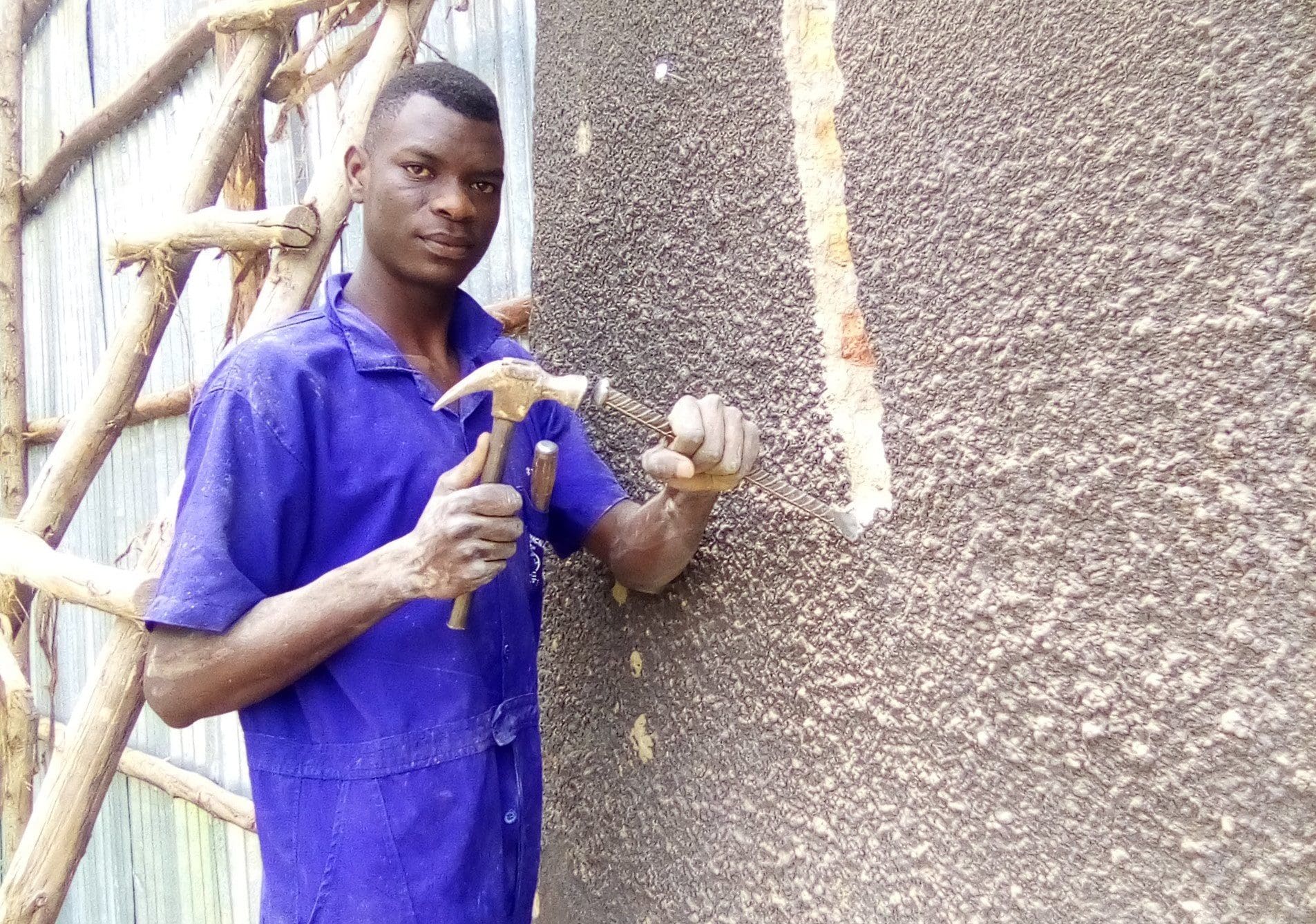

Studying to become a Field Electrician
When you studied Electrical Engineering Technologies, Installations Systems and Maintenance, your course was theoretical and practical.
In your opinion, how important is it to have practical as well as theoretical education?
Does this make the best field service technicians?
It’s really important to study both. For example, for any project you need to make a site inspection and survey it. Then you need to make a plan for your work and issue the quotation for everything required for that project to start it off. After all that work then the practical work starts. You need to know how to read the blueprints which follow theory and then convert them into practical work.
I emphasize that all people who dream of becoming field service technicians need to focus on both carefully.
Which historical scientific figure impressed you?
Archimedes was the one who caught my eye.
Typical week as a Field Electrician
What’s your typical week like?
Right now, I work as an independent Field Electrician and my schedule is flexible. Usually on Mondays I spend most of my time marketing my work via various media platforms. As I am a government certified Electrical Engineer, I tend to make surveys on some sites that require new connection. Then I apply to the relevant organisation to supply our customers with power.
When I am working on site for a client, I always give it priority before anything else as my client is my boss.
That’s how I spend the week working on inspections and surveying, making applications for power, handling electrical and solar installations. Then Sundays for prayer.
How much of your time is spent on site and how much with admin and other tasks?
Most of my time is spent on sites and then I handle admin and other tasks when I can.
What are the types of equipment you service, maintain and install?
I handle different types of equipment. For example: water pumps, water heaters, cookers, washing machines, all household electrical appliances, lightning conductors, electric bells, lighting, and electrical and solar installations.
What is the most difficult equipment you work with?
Water pumps especially those that operate on solar power.
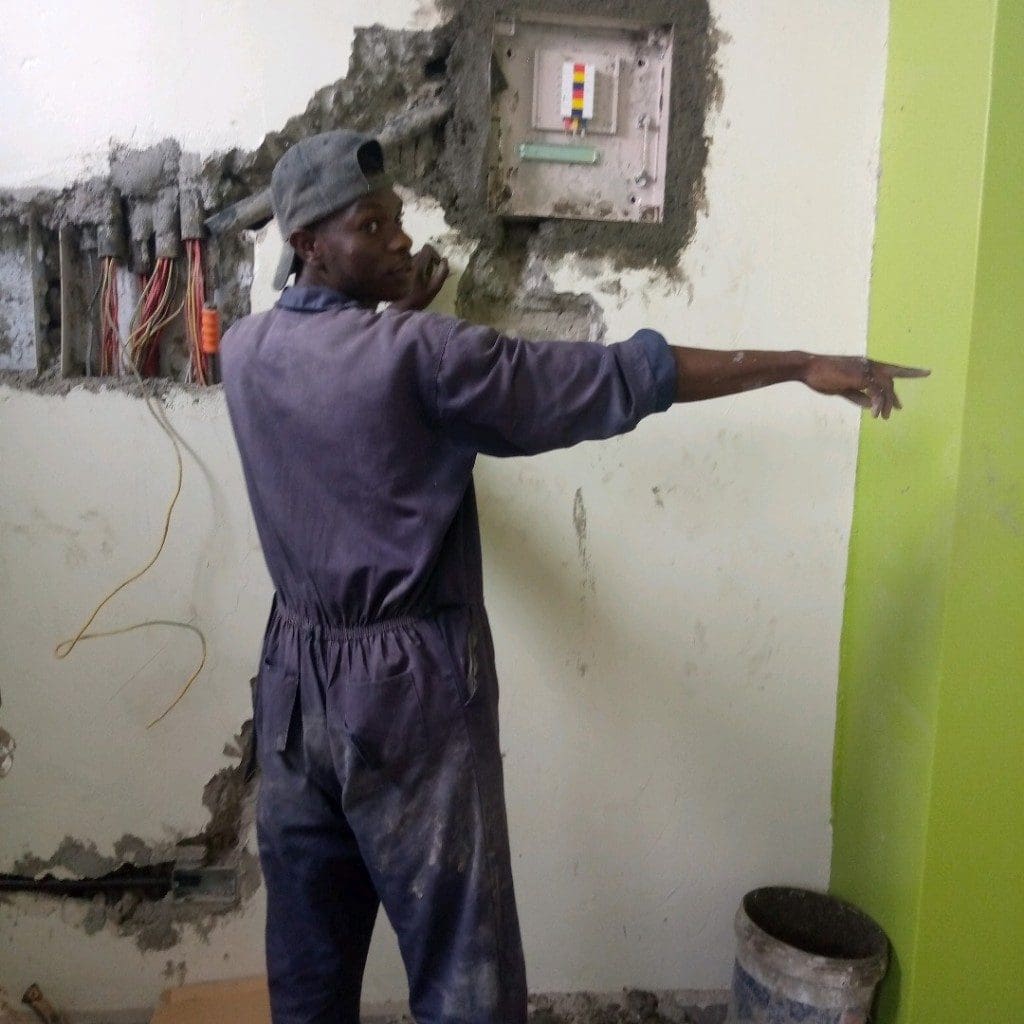

Health and safety
What sort of clothing do you have to wear when you work?
Overall, gloves, helmet and safety shoes.
How important is health and safety in the work you do?
Firstly, in my work I never take it for granted that the circuit is dead. By this I mean, in whatever you are doing you need to be extra careful as a little mistake could cause your death when working on live circuits.
As well you need to be safe before taking any step whenever you are at work. For example, to work at heights make sure that the ladder is firm and stable to protect your health.
Most challenging part of the job as a Field Electrician
What do you find most challenging when you are working?
There are lots of challenges. Here are three examples.
Working on busy buildings with live circuit maintenance is
challenging and risky.
Fitting of security lights on huge skyscrapers is another example.
Travelling long distances for work and then sleeping on sites in areas with unfavourable weather conditions. Here in Uganda to go on site can mean travel from the central to northern area by bus spending almost twelve hours on the way.
What has been your most challenging job in the field?
Once I worked for a client and his site was almost finished but the electrician that had been working on it had failed to power it. So, I had to go and change everything within the building. It was so challenging as the routes were all blocked and even the wiring was full of short circuits. That meant I had to do the work on a live circuit as everything wasn’t clear otherwise.
Have you ever arrived on site and found that it was much easier than you expected? For example, did you ever need to simply switch on a machine.
Recently the Centon instant water heater wasn’t functioning. When I opened it, I just needed to press the reset button. Then I explained the procedures to follow when using it and also not to leave it on without using it.
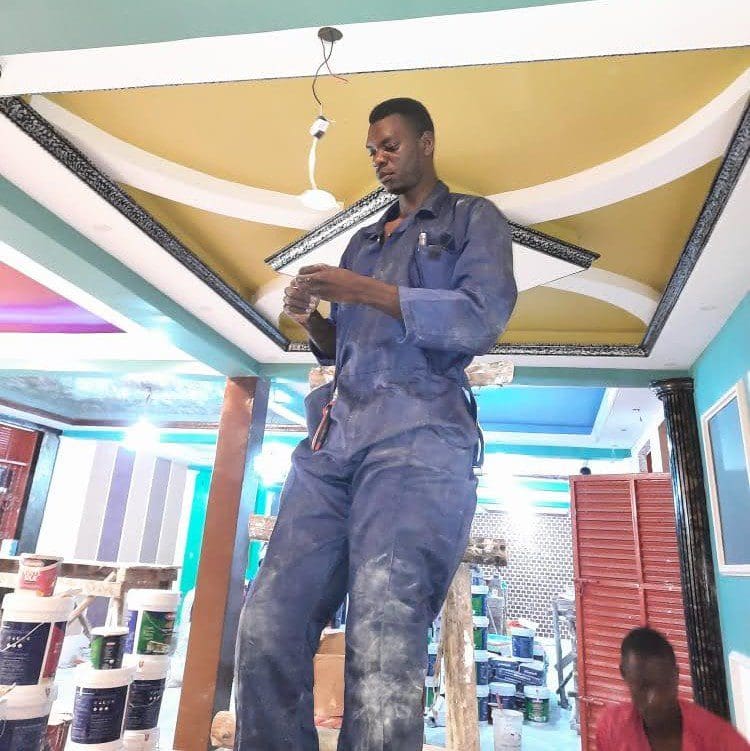

Making a winner
What makes the type of field service technician who is tomorrow’s senior engineer?
The most important qualities are being patient, being a hard worker as well as self-motivated and “eager to learn not just to earn”.
When starting your career, the most important thing to do is doing something that can make you missed when you are not around. That will show your flexibility, passion, and desire for work.
How important are communication and people skills?
This is one of the most important in our field as you need to make reports, give explanations to clients about the benefits of the work you are to do and the precautions to follow.
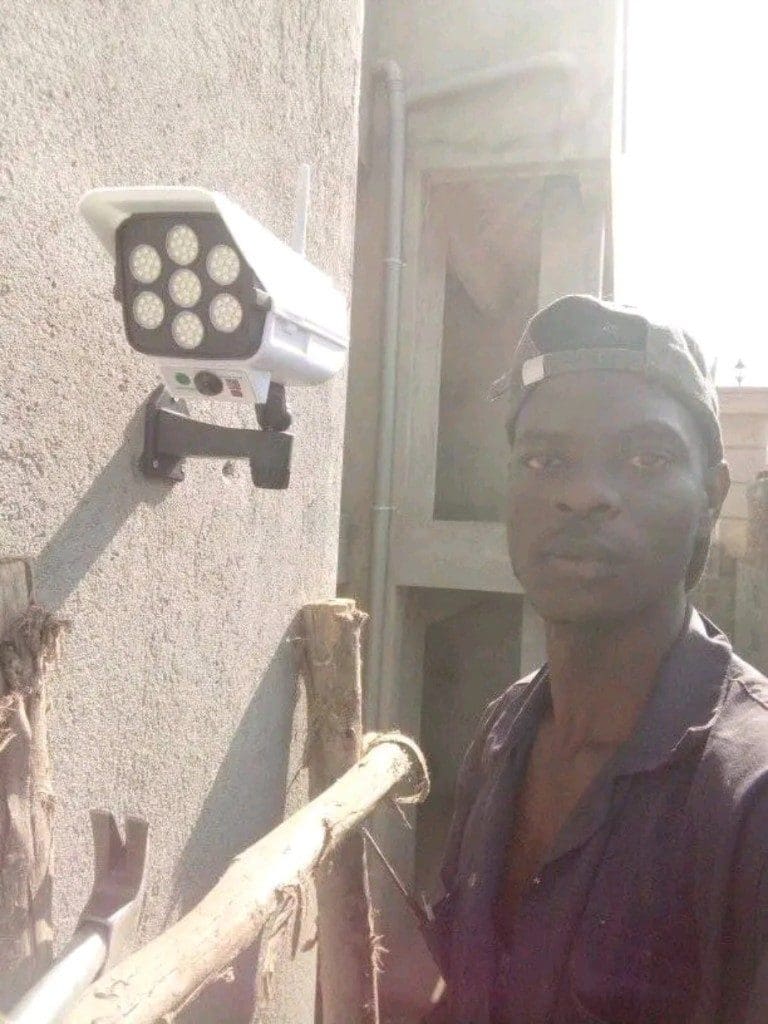

New field electricians
What advice would you give to someone who has just started their first job as a field electrician? Or is considering moving into this field?
To focus on training, gaining more skills, knowledge and experience.
Always being innovative and being a hard worker.
Show respect to the team manager and team members with being dependable at work.
Apart from a strong technical background, what are the three most important skills to have?
Strong computer skills, marketing and communication skills.


Further reading
An Instrumentation Engineer keeping the production line running


Responses